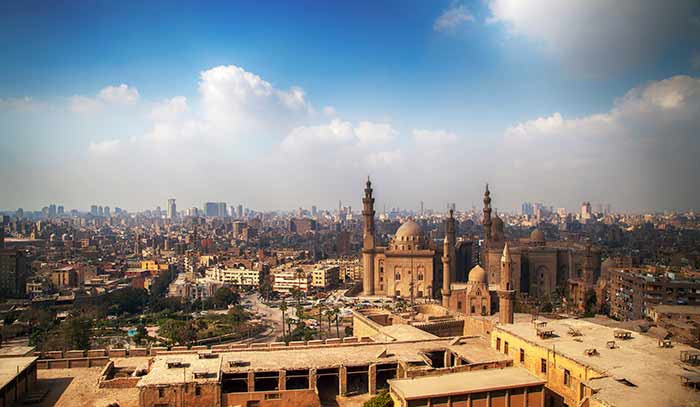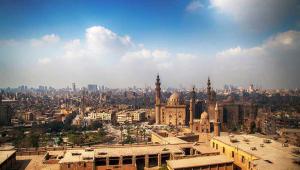web_cairo_istock_87168003_medium.jpg

Cairo, Egypt.
The country’s central bank announced today that it will float the Egyptian pound for the first time in decades in order to ease a cash crunch, curb a thriving black market for the currency and meet key conditions for IMF lending.
It also devalued the currency by 48%, pegging it at 13 pounds to the dollar, ahead of a central bank auction of pounds later on today, where the value will be determined by supply and demand.
A central bank statement published today said that while this will generate some volatility in the short term, it was the right choice for the Egyptian economy.
A shortage of hard currency and double-digit inflation has hit the import-reliant economy and sent prices soaring, leaving many people struggling to afford food and basic goods.
Largely imported products such as sugar are disappearing from supermarkets and supplies of medicines and other essentials are also low.
The suspension of oil from Saudi Arabia earlier this month and a general decline in support from Egypt’s Gulf allies as their oil wealth falters have exacerbated the crisis and forced the nation to turn to the lender of last resort.
Egyptian president Abdel Fatah al-Sisi has already made a catalogue of unpopular cuts to subsidy programmes demanded by the IMF in order for the loan, which has been agreed but not yet ratified by the fund’s executive board, to go ahead.
IMF managing director Christine Lagarde said last week the country was in the midst of a currency crisis and suggested a devaluation of the pound to close the substantial gap between official and black market rates.
The currency had been officially pegged at nine Egyptian pounds to the dollar, compared to a black market rate which plummeted to 18 pounds to the dollar last week.
Egypt’s efforts to prop up the currency at the overvalued official rate, while dealers could purchase far more on the black market, depleted the country’s foreign exchange reserves.
Chris Jarvis, the IMF's mission chief for Egypt, welcomed Egypt's decision to liberalise the exchange rate, which he said would make more foreign exchange available by encouraging people to buy and sell it.
"The flexible exchange rate regime, where the exchange rate is determined by market forces, will support Egypt's competitiveness, support exports and tourism, and attract foreign investment. All of this will help foster growth, job creation, and stronger external position for the country."
The IMF has previously made it clear that Egypt must follow through on promised reforms in order for the first tranche of the three-year loan to be released.
As well as currency liberalisation, Egypt has already cut subsidies on household electricity and sugar – pushing prices up by 40%.
Further austerity measures will be required as part of the IMF loan, slashing the generous support relied upon by many Egyptians.
Following his successful 2013 coup, President Sisi enjoyed widespread popularity. But with the economy in a seemingly downward spiral, Egyptians are increasingly dissatisfied.
The 2011 revolution knocked investor confidence in Egypt – a problem further exacerbated by the artificially expensive currency and security concerns.
A spate of terrorist attacks has also dealt a severe blow to Egypt’s tourism industry, once a key driver of growth.











